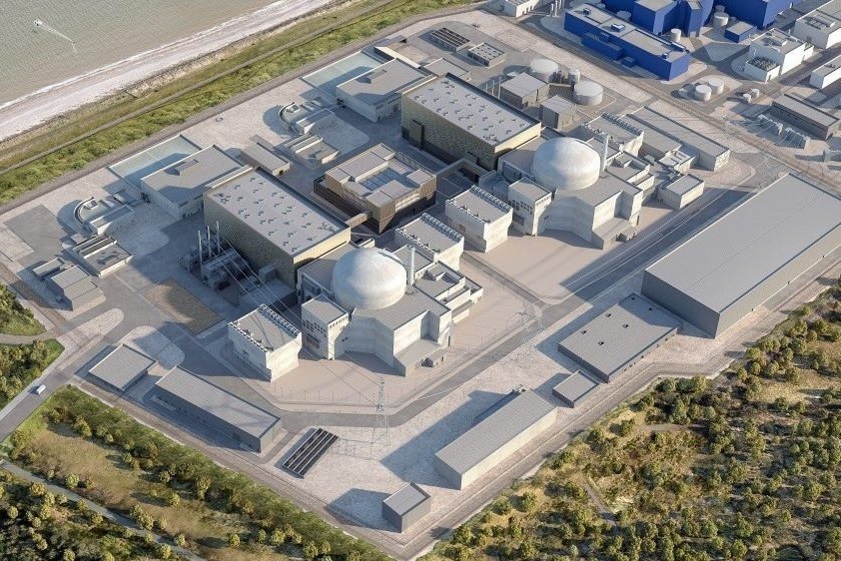Yesterday the government announced that it has made an additional £1.3bn available to blow wind in the sails of the proposed Sizewell C nuclear power plant.
This means that £2.5bn has been allocated to the Suffolk project to date.
It was originally meant to be a private sector project, but that actually would have meant Chinese state ownership, which the government eventually decided was not good. Instead it stepped in to partner French energy giant EDF on the project. EDF is already building Hinkley Point C in Somerset with Chinese state support.
The development consent order (DCO) triggered by Sizewell C on 15th January gave the formal green light for construction to begin and released £250m funding for initiatives for the local community and environment.
That was an attempt to win over hearts and minds. That remains work in progress. Despite having lost their legal challenge at the Court of Appeal, opponents to the scheme are now mobilising to go the Supreme Court.
This week’s additional £1.3bn consolidates the government’s position as the majority shareholder in the project, reached in December 2023. It follows a £700m funding pledge in November 2022 and a further £511m agreed last summer.
The largest funding package to date will allow early construction works to continue ahead of a final investment decision later this year, the government said. It will support ongoing preparatory works such as improvements to roads and rail lines around the Suffolk site, ensuring the necessary local infrastructure is in place before full construction begins.
Nuclear minister Andrew Bowie said: “We are making fantastic progress on the next GW-scale power plant in the UK’s nuclear pipeline.
“This investment injection means we can steam ahead with work on Sizewell C ahead of the final investment decision targeted later this year.”
Meanwhile Together Against Sizewell C Limited (TASC) is refusing to admit defeat after Court of Appeal judges ruled that the issue of a permanent water supply and public interest in the development was not enough to derail the project in law.
TASC went to the Court of Appeal after its judicial review of then business secretary Kwasi Kwarteng’s 2022 decision to give development consent to the 3.2GW power station was dismissed. Kwarteng gave permission for the power station against the advice of the planning examining authority and TASC brought a range of arguments about the need for a water supply to make the project sustainable in the Suffolk Coast and Heaths Area of Outstanding Natural Beauty.
Now, represented by law firm Leigh Day, TASC has applied to the Supreme Court for permission to bring an appeal.
TASC says it is clear a desalination plant will be needed to guarantee a permanent water supply of two million litres per day for Sizewell C. However, the environmental impact of acquiring such a supply was not included in the planning application for the nuclear power plant and therefore was neither assessed nor taken into account by the business secretary. TASC said the issue of a water supply should not have been treated as a separate issue to the power plant application.
Others highlight the uncertain financial background of the project.
Alison Downes of Stop Sizewell C said: “The government has now spent £2.5bn of taxpayers’ money on Sizewell C, with grave uncertainty about its ability to make a final investment decision, or even how much the project will cost. There’s little indication external investors have serious interest in Sizewell C at this point, and every sign that Hinkley Point C’s costs and schedule in building the same type of reactors are heading south, so it is inexplicable why the government is intent on shackling taxpayers and consumers to such a disastrous project, especially with an election approaching.”
Got a story? Email [email protected]


